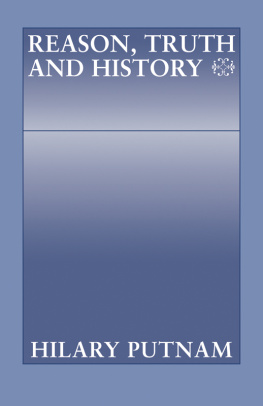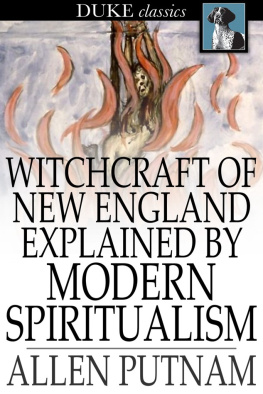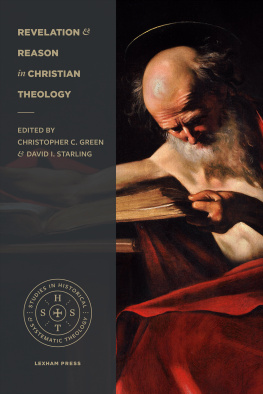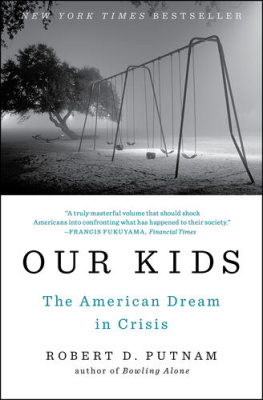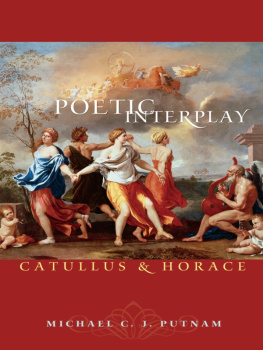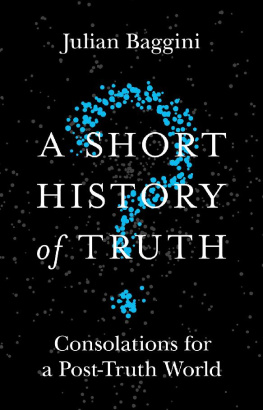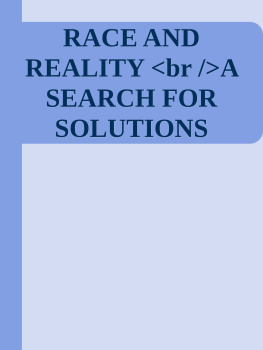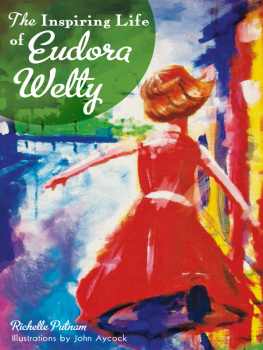Putnam - Reason, Truth and History
Here you can read online Putnam - Reason, Truth and History full text of the book (entire story) in english for free. Download pdf and epub, get meaning, cover and reviews about this ebook. year: 2004, publisher: Cambridge Univ Pr, genre: Religion. Description of the work, (preface) as well as reviews are available. Best literature library LitArk.com created for fans of good reading and offers a wide selection of genres:
Romance novel
Science fiction
Adventure
Detective
Science
History
Home and family
Prose
Art
Politics
Computer
Non-fiction
Religion
Business
Children
Humor
Choose a favorite category and find really read worthwhile books. Enjoy immersion in the world of imagination, feel the emotions of the characters or learn something new for yourself, make an fascinating discovery.
Reason, Truth and History: summary, description and annotation
We offer to read an annotation, description, summary or preface (depends on what the author of the book "Reason, Truth and History" wrote himself). If you haven't found the necessary information about the book — write in the comments, we will try to find it.
Reason, Truth and History — read online for free the complete book (whole text) full work
Below is the text of the book, divided by pages. System saving the place of the last page read, allows you to conveniently read the book "Reason, Truth and History" online for free, without having to search again every time where you left off. Put a bookmark, and you can go to the page where you finished reading at any time.
Font size:
Interval:
Bookmark:
REASON, TRUTH AND HISTORY
REASON, TRUTH AND HISTORY
Hilary Putnam

PUBLISHED BY THE PRESS SYNDICATE OF THE UNIVERSITY OF CAMBRIDGE
The Pitt Building, Trumpington Street, Cambridge CB2 1RP, United Kingdom
CAMBRIDGE UNIVERSITY PRESS
The Edinburgh Building, Cambridge CB2 2RU, UK http://www.cup.cam.ac.uk
40 West 20th Street, New York, NY 10011-4211, USA http://www.cup.org
10 Stamford Road, Oakleigh, Melbourne 3166, Australia
Cambridge University Press 1981
This book is in copyright. Subject to statutory exception and to the provisions of relevant collective licensing agreements, no reproduction of any part may take place without the written permission of Cambridge University Press.
First published 1981
Reprinted 1982, 1985, 1986, 1987, 1989, 1990, 1991, 1992, 1993,
1994, 1995, 1997, 1998
Typeset in Sabon
A catalogue record for this book is available from the British Library
Library of Congress Cataloguing-in-Publication Data is available
ISBN 0-521-23035-7 hardback
ISBN 0-521-29776-1 paperback
Transferred to digital printing 2004
FOR RUTH ANNA
Contents
Note
A reader who is unused to technical philosophy, or who wishes to gain an overview of the argument of this book, might well start by reading .
Preface
In the present work, the aim which I have in mind is to break the strangle hold which a number of dichotomies appear to have on the thinking of both philosophers and laymen. Chief among these is the dichotomy between objective and subjective views of truth and reason. The phenomenon I am thinking of is this: once such a dichotomy as the dichotomy between objective and subjective has become accepted, accepted not as a mere pair of categories but as a characterization of types of views and styles of thought, thinkers begin to view the terms of the dichotomy almost as ideological labels. Many, perhaps most, philosophers hold some version of the copy theory of truth today, the conception according to which a statement is true just in case it corresponds to the (mind independent) facts; and the philosophers in this faction see the only alternative as the denial of the objectivity of truth and a capitulation to the idea that all schemes of thought and all points of view are hopelessly subjective. Inevitably a bold minority (Kuhn, in some of his moods at least; Feyerabend, and such distinguished continental philosophers as Foucault) range themselves under the opposite label. They agree that the alternative to a naive copy conception of truth is to see systems of thought, ideologies, even (in the case of Kuhn and Feyerabend) scientific theories, as subjective, and they proceed to put forward a relativist and subjective view with vigor.
That philosophical dispute assumes somewhat the character of ideological dispute is not, of itself, necessarily bad: new ideas, even in the most exact sciences, are frequently both espoused and attacked with partisan vigor. Even in politics, polarization and ideological fervor are sometimes necessary to bring moral seriousness to an issue. But in time, both in philosophy and politics, new ideas become old ideas; what was once challenging, becomes predictable and boring; and what once served to focus attention where it should be focussed, later keeps discussion from considering new alternatives. This has now happened in the debate between the correspondence views of truth and subjectivist views. In the first three chapters of this book I shall try to explain a conception of truth which unites objective and subjective components. This view, in spirit at least, goes back to ideas of Immanuel Kant; and it holds that we can reject a naive copy conception of truth without having to hold that its all a matter of the Zeitgeist, or a matter of gestalt switches, or all a matter of ideology.
The view which I shall defend holds, to put it very roughly, that there is an extremely close connection between the notions of truth and rationality; that, to put it even more crudely, the only criterion for what is a fact is what it is rational to accept. (I mean this quite literally and across the board; thus if it can be rational to accept that a picture is beautiful, then it can be a fact that the picture is beautiful.) There can be value facts on this conception. But the relation between rational acceptability and truth is a relation between two distinct notions. A statement can be rationally acceptable at a time but not true; and this realist intuition will be preserved in my account.
I do not believe, however, that rationality is defined by a set of unchanging canons or principles; methodological principles are connected with our view of the world, including our view of ourselves as part of the world, and change with time. Thus I agree with the subjectivist philosophers that there is no fixed, ahistorical organon which defines what it is to be rational; but I dont conclude from the fact that our conceptions of reason evolve in history, that reason itself can be (or evolve into) anything, nor do I end up in some fancy mixture of cultural relativism and structuralism like the French philosophers. The dichotomy: either ahistorical unchanging canons of rationality or cultural relativism is a dichotomy that I regard as outdated.
Another feature of the view is that rationality is not restricted to laboratory science, nor different in a fundamental way in laboratory science and outside of it. The conception that it is seems to me a hangover from positivism; from the idea that the scientific world is in some way constructed out of sense data and the idea that terms in the laboratory sciences are operationally defined. I shall not devote much space to criticizing operationalist and positivist views of science; these have been thoroughly criticized in the last twenty-odd years. But the empiricist idea that sense data constitute some sort of objective ground floor for at least a part of our knowledge will be reexamined in the light of what we have to say about truth and rationality (in ).
In short, I shall advance a view in which the mind does not simply copy a world which admits of description by One True Theory. But my view is not a view in which the mind makes up the world, either (or makes it up subject to constraints imposed by methodological canons and mind-independent sense-data). If one must use metaphorical language, then let the metaphor be this: the mind and the world jointly make up the mind and the world. (Or, to make the metaphor even more Hegelian, the Universe makes up the Universe with minds collectively playing a special role in the making up.)
A final feature of my account of rationality is this: I shall try to show that our notion of rationality is, at bottom, just one part of our conception of human flourishing, our idea of the good. Truth is deeply dependent on what have been recently called values (). And what we said above about rationality and history also applies to value and history; there is no given, ahistorical, set of moral principles which define once and for all what human flourishing consists in; but that doesnt mean that its all merely cultural and relative. Since the current state in the theory of truth the current dichotomy between copy theories of truth and subjective accounts of truth is at least partly responsible, in my view, for the notorious fact/value dichotomy, it is only by going to a very deep level and correcting our accounts of truth and rationality themselves that we can get beyond the fact/value dichotomy. (A dichotomy which, as it is conventionally understood, virtually commits one to some sort of relativism.) The current views of truth are alienated views; they cause one to lose one part or another of ones self and the world, to see the world as simply consisting of elementary particles swerving in the void (the physicalist view, which sees the
Next pageFont size:
Interval:
Bookmark:
Similar books «Reason, Truth and History»
Look at similar books to Reason, Truth and History. We have selected literature similar in name and meaning in the hope of providing readers with more options to find new, interesting, not yet read works.
Discussion, reviews of the book Reason, Truth and History and just readers' own opinions. Leave your comments, write what you think about the work, its meaning or the main characters. Specify what exactly you liked and what you didn't like, and why you think so.

